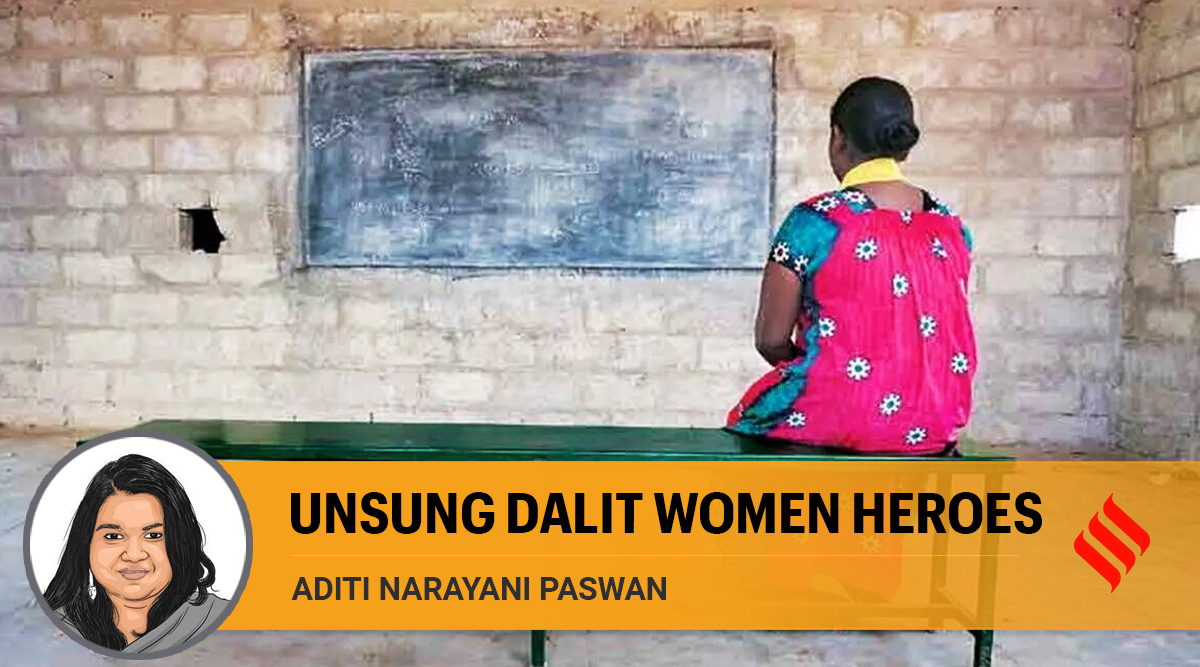It would be a profound injustice to recognise Babasaheb Ambedkar, whose 131st birth anniversary was recently celebrated, as only a Dalit leader. He also worked hard for the cause of women’s rights, believing that a society’s political, economic and social aspects can only be ameliorated when men and women have equal rights. This piece is therefore a tribute to all the women from the periphery who have either not been heard of or written about but are important. We can’t celebrate Ambedkar without giving due respect and acknowledgement to these women.
The historical and cultural narratives of India have failed to acknowledge the contributions of the women from the margins, as they are either androcentric in approach or reflective of the dominant castes. Remembering unsung Dalit women heroes and their stories of struggle and bravery from across the centuries, will broaden these narratives and help address the institutionalised discrimination Dalit women have faced for centuries.
 Must Read OpinionsTransition to new Parliament building: The infrastructural nationalism is symbolic of our timesSale of ‘The Story Teller’ and the defiance of Amrita Sher-GilWomen’s reservation Bill – finally, a House of equalityClick here for more
Must Read OpinionsTransition to new Parliament building: The infrastructural nationalism is symbolic of our timesSale of ‘The Story Teller’ and the defiance of Amrita Sher-GilWomen’s reservation Bill – finally, a House of equalityClick here for more
The story of Sabari from the Ramayana has been used as an example of acceptance, selflessness and unconditional love, and adapted into bhajans and poems. The coming of bhakti saw the emergence of women from the Mahar caste, such as Sant Nirmala and Soyarabai, questioning Hindu orthodoxy. Nangeli fought against the cruel “breast tax” system, which imposed a tax on women of the lower castes who covered their breasts. She cut off one of her breasts and presented it to tax collectors, inspiring other women in the community to cover their breasts unapologetically.
Every section of society attempted to combine social and political liberation during the freedom struggle. Kuyili, who commanded the army of Velu Nachiyar, the queen of Sivaganga in Tamil Nadu, was a Dalit woman who fought against the British around 1780. Jhalkaribai, another fearless Dalit warrior, played a pivotal role in what is known as the First War of Independence in 1857, as the most trusted companion and advisor of Rani Laxmibai of Jhansi. Born in Ujirao, Lucknow, Uda Devi formed a battalion consisting of Dalit women under the leadership of Begum Hazrat Mahal.
Among social reformers, there was Savitribai Phule, a pioneer in education for Dalits, who started a school in 1848 with nine girls. By 1851 this became three schools with around 150 girl students. She also started a school in 1849 with her friend Fatima Sheikh, the Mahila Seva Mandal in 1852 to raise awareness about women’s rights and the Balahatya Pratibandhak Griha, where widows and rape survivors could deliver their babies. Born in the Kaibarta caste community, Rani Rashmoni, protested practices like sati and child marriage and atrocities against lower caste people and even submitted a plea against polygamy to the Company. Moovalur Ramamirtham Ammaiyar fought against the exploitative Devadasi system. In 1936, she published a Tamil novel on Devadasis and wrote the fictional series Damayanthi in 1945.
Most Read 1Chandrayaan-3 mission: Dawn breaks on Moon, all eyes on lander, rover to wake up 2As Indo-Canadian relations sour, anxiety grips Indian students, residents who wish to settle in Canada 3Karan Johar says Sanjay Leela Bhansali did not call him after Rocky Aur Rani: ‘He’s never called me but…’ 4Gadar 2 box office collection day 40: Hit by Shah Rukh Khan’s Jawan onslaught, Sunny Deol movie ends BO run with Rs 45 lakh earning 5Shubh’s tour in India cancelled: Why is the Canada-based singer facing the music?
Dakshayani Velayudhan was the first and only Dalit woman to be elected to the constituent assembly in 1946. She was also a part of the provisional parliament from 1946-1952. Her contribution in civil disobedience and satyagraha is a story that needs to be told.
The bravery of Dalit women has not only been visible in their deeds but also in the words they wrote. In Maharashtra, writers like Shantabai Kamble, Mallika Amar Sheikh and Kumud Pawde shone a light on Dalit feminism through their autobiographies. In Tamil Nadu, writers like Bama and P Sivakami explored gender discrimination as a two-fold oppression. Marathi writers like Urmila Pawar and Meenakshi Moon worked to make Dalit women visible in women’s movement and, through their research and testimonies, brought out the grim reality of the missing voices. Dalit women like Dulari Devi and Mayawati also need to be celebrated. Her conviction and social engineering skills made Mayawati chief minister of UP four times, and through her art, Devi, a Mithila painter from Bihar, tracks the interplay between meaning and power within the hierarchical structures of religion, caste, gender and politics.
Also ReadWill reservation really help Indian women?Pratap Bhanu Mehta writes on new Parliament: India’s age of ambitionValues Kota imparted: Anxiety and building a future on a butchered presentWith G20-IMEC plan, the global order shifts to Eurasia
This column first appeared in the print edition on April 21, 2022 under the title ‘Unsung Dalit women heroes’. The writer is assistant professor, Maitreyi College and founder of DAPSA
© The Indian Express (P) Ltd



